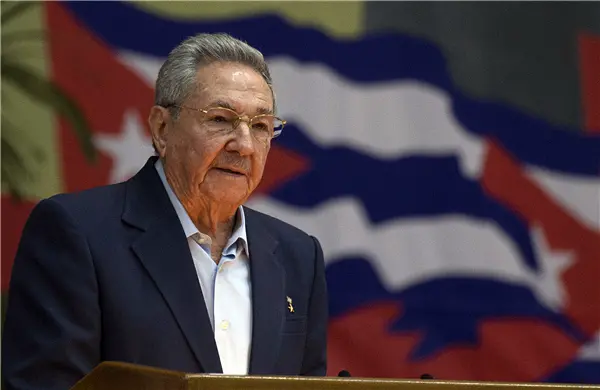Cuban leader Raul Castro on Saturday set the paths for the country's economic and political development, in a speech at the Seventh Congress of Cuba's Communist Party that began here the same day.
In the two-hour address, Castro called for deeper economic reforms without embracing a capitalist system or "shock therapies" that would affect the poorest people in the country.
"Raul Castro's speech was a real take of the problems and challenges the Cuban society has today. The state economy must become more efficient and productive to satisfy the needs of a major part of our society," Ariel Terrero, a prominent Cuban political analyst, told Xinhua.
During the speech, Castro lamented his government's inability to address a series of deeper structural problems such as a double currency system, the overdependence on imports and insufficient agricultural production in the island.
The Cuban leader spoke at length about the need to unify Cuba's two currencies and create a legal framework for small and medium-sized private businesses.
"He made a thorough analysis of the distortions the dual currency system has created for the economy and how the government has been working to organize its finances to eliminate in the near future one of the two currencies that circulate in Cuba," added Terrero.
The Cuban expert on domestic economic issues said Havana is committed to providing private workers and small companies a legal framework to operate alongside the state economy.
"The government needs to diversify the different forms of property even if that means a risk for a socialist economy but the private sector definitely provides new opportunities, possibilities and benefits to the society," he stressed.
The emerging private sector has grown to include nearly a quarter of the working population, or roughly 500,000 people, with hundreds of restaurants, bars, and lodgings for tourists or taxis operating all over the country.
Castro revealed that this year's congress may adopt important new measures to jumpstart the reform of the economy, which grew 4 percent last year amid a nearly 20-percent surge in tourism.
Citing a government statistic that only 21 percent of the 313 guidelines approved in 2011 by the party congress have been carried out, the Cuban head of state said efforts will continue on those unaccomplished plans in the following five years.
The Cuban leader said that of 268 measures under consideration, 31 are unchanged from 2011 and 44 are entirely new. He added that 193 have been "modified," but did not elaborate.
"Raul presented the congress with a panorama of what was achieved in the last five years after ground-breaking reforms were approved. Some areas of the economy have advanced more than others but the transformations must now be deeper," said Terrero.
The expert added the congress won't only debate the immediate and short-term reforms but has also designated a working group to work out the country's development plan until 2030.
"The Cuban government is working seriously not only to change old forms into new economic measures that impact the society as a whole but is also taking on the challenge of having a clear vision of where it wants to go in the next 15 to 20 years," said the expert.
Castro said Saturday that Cuba's reforms would be "with neither haste nor pause" and the country would never experience "neoliberal formulas" implemented by some other countries.
This congress has raised expectations among experts and Cubans that it could set the stage for accelerated political and economic changes following the rapprochement with Washington.
However, Cuban authorities have expressed that continuity and evaluation of the social and economic changes will be the tone of the four-day closed-door sessions.
On next Tuesday, a ruling party central committee composed of over 100 members, a politburo and the first and second secretaries of the organization will be elected by the congress before its closing ceremony.
The country's famous former leader, Fidel Castro, may appear at the closing event just as he did in 2011.
 简体中文
简体中文

